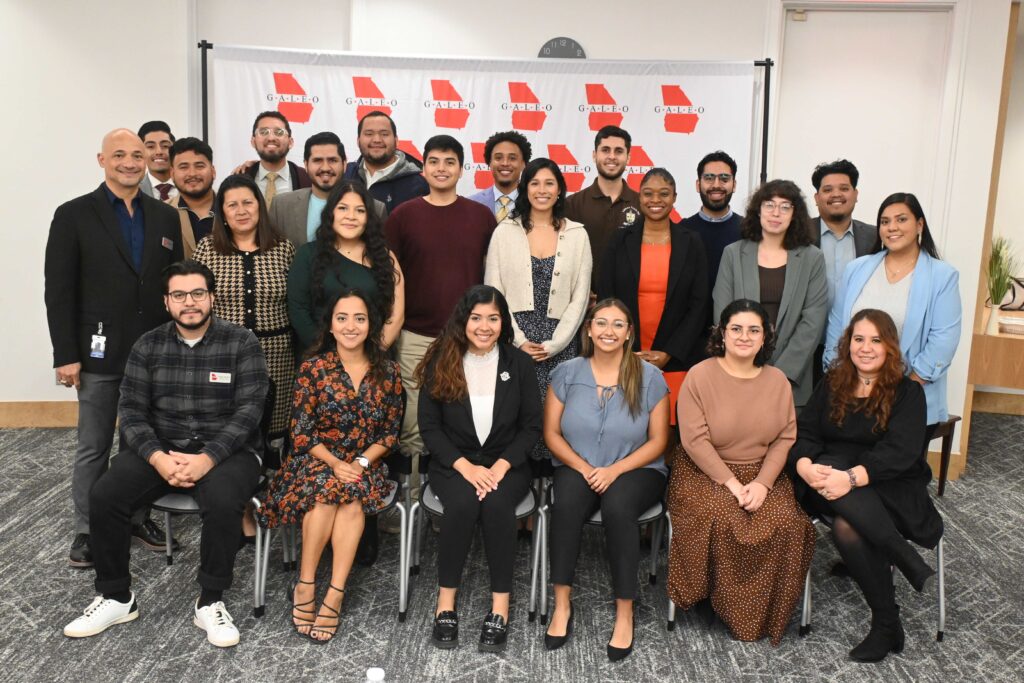
ATLANTA – TODAY The Southern Poverty Law Center (SPLC), Southern Coalition for Social Justice (SCSJ), ACLU of Georgia, Lawyers’ Committee for Civil Rights Under Law (Lawyer’s Committee) and Schulte, Roth & Zabel LLP (SRZ), filed litigation challenging the Cobb County School Board map for intentionally discriminating against communities of color, particularly Black and Latinx voters, by “packing” them into a small number of districts to dilute their voting power.
Please find a copy of the complaint HERE.
The lawsuit, Finn v. Cobb County Board of Elections, describes how the school board and Georgia legislators used racial demographic information to “pack” voters of color into three districts (Districts 2, 3, and 6), and whitewash the four remaining districts. The use of racial demographic information to diminish the voting power of Black and Latinx communities violates the Fourteenth Amendment and Fifteenth Amendments of the U.S. Constitution.
The voting rights organizations filed the litigation on behalf of the New Georgia Project Action Fund, The League of Women Voters of Marietta-Cobb, the Georgia Coalition for the People’s Agenda (GCPA), the Georgia NAACP, the Georgia Association of Latino Elected Officials (GALEO), and individual Cobb County parents. The litigation can be accessed HERE.
“Despite the growing diversity of Cobb County, the current district map ‘packs’ together Latinx and Black communities to diminish their voice in government and ensure a majority white school board,” said Jerry Gonzalez CEO of GALEO. “Even worse, the school board followed up the discriminatory maps by ignoring the interests and concerns of Latinx and Black parents and students. We need a school board map that reflects the community – Latinx and Black parents must have an equal say in the education of their children.”
Background:
Cobb County is the third most populous county in Georgia with just over 766,000 people and is one of the most rapidly diversifying counties in the state. Between 2010 and 2020, Cobb moved from a majority-white (56%) to a majority-BIPOC county (52%), with the white population dropping at a rate almost double that of the reduction in white population across the state. Accompanying the demographic shift is a clear growth in the political strength of voters of color. While Cobb County contains the city of Marietta, the Marietta city schools are separate from Cobb County schools and not included in this litigation.
In Georgia, county-level redistricting maps must be approved by the General Assembly through the legislative process. For these school board maps, the legislature bypassed local legislation rules, which would have required prior negotiation and approval by the legislative members representing Cobb and instead moved the proposed school board map through the general legislation process. This allowed them to bring the bills before committees with white, conservative majorities and onto the floor of both chambers, controlled by the conservative majority.
The complaint alleges that the maps violate the Fourteenth Amendment guaranteeing equal protection under the law and the Fifteenth Amendment, by using race to segregate and cabin Black and Latinx voters into the three south Cobb districts, despite the trending and rapid growth of these communities. The failure to provide full representation to communities of color in Cobb County has already had detrimental effects for students. In reaction to the county’s growing diversification, the state and county’s white, conservative leaders have enacted policies that harm children of color and attempt to stymie the growing political power of voters of color. Notably, the school board’s 4-member white majority recently enacted policies that silence Black board members and their constituents. This includes a post-2020 election rule that makes it impossible for Black board members to add items to meeting agendas; the dismantling of a committee to rename Wheeler High School which is currently named after a confederate general; refusal to entertain school COVID mitigation strategies advanced by Black members of the school board and their constituents; refusal to modify policies that disproportionately suspend, expel, and criminalize children of color; and passage of resolutions to ban critical race theory, the 1619 Project, and other similar materials in schools. Cobb County schools were also at risk of non-accreditation, in part due to findings that white school board members mistreated Black school board members.
Media Contact:
SPLC: Kevin Pallasch, Kevin.Pallasch@
SCSJ: Gino Nuzzolillo, gino@scsj.org, (402) 415-4763
ACLU of Georgia: Dorrie Toney, media@acluga.org, (404) 302-0128
Berlin Rosen/Lawyers Committee: Leah Rozario, lawyerscommittee@
SRZ: Sara Solfanelli, sara.solfanelli@
LWV: Shannon Augustus, saugustus@lwv.org, (202) 768-9578
###